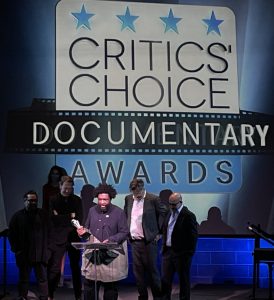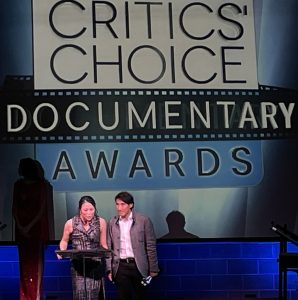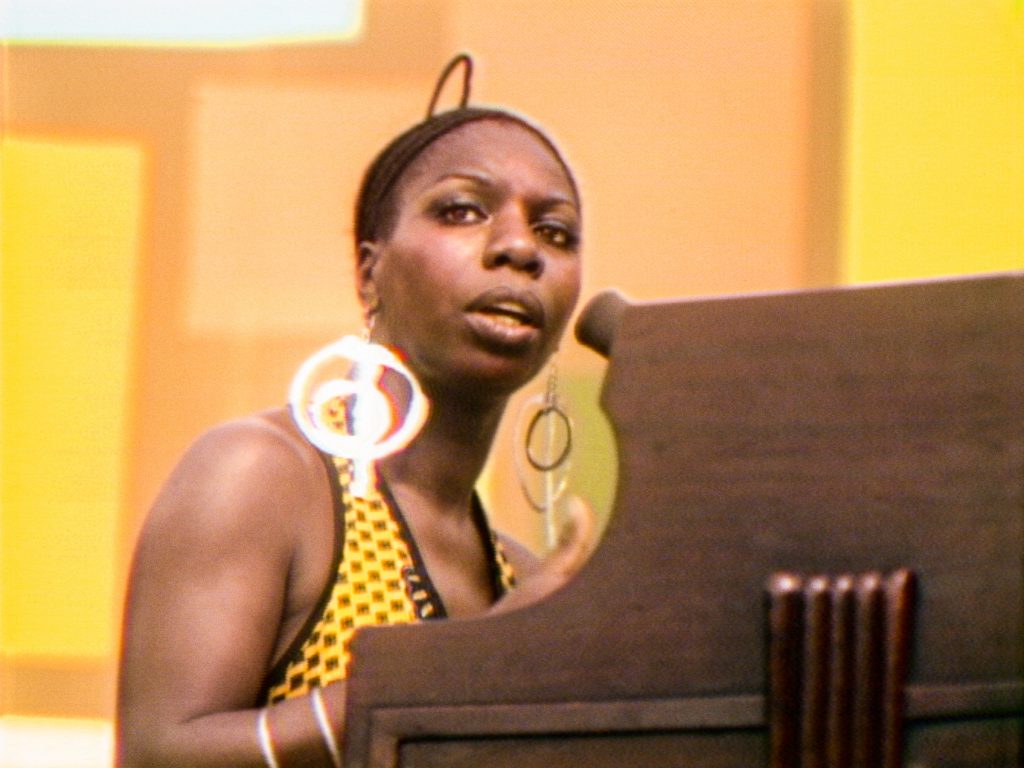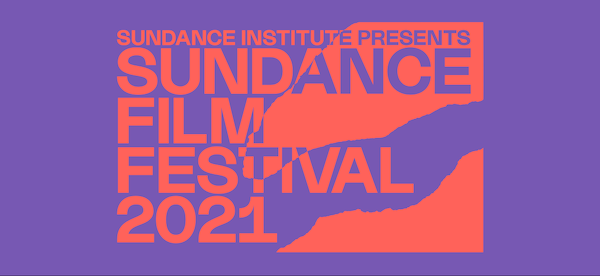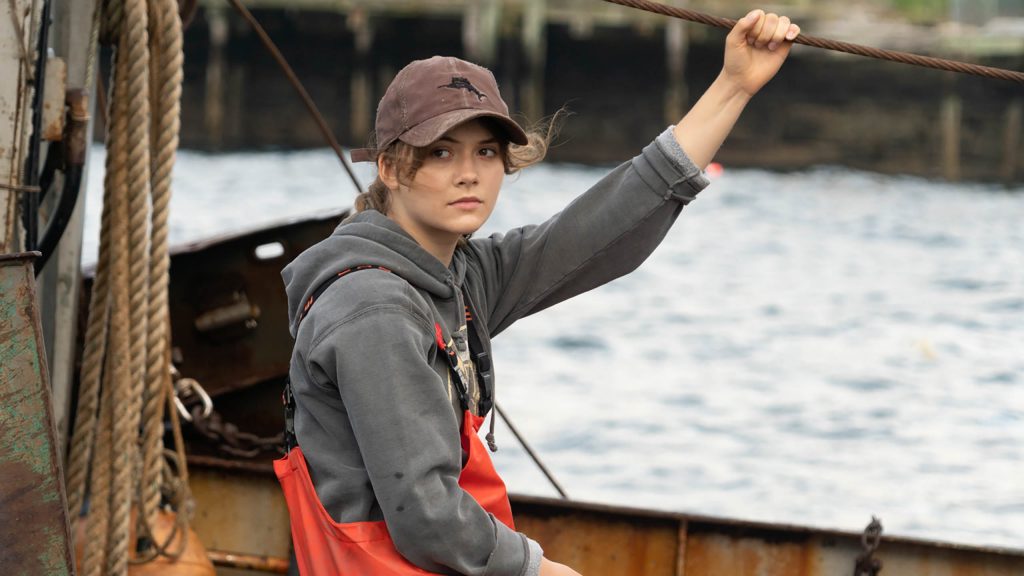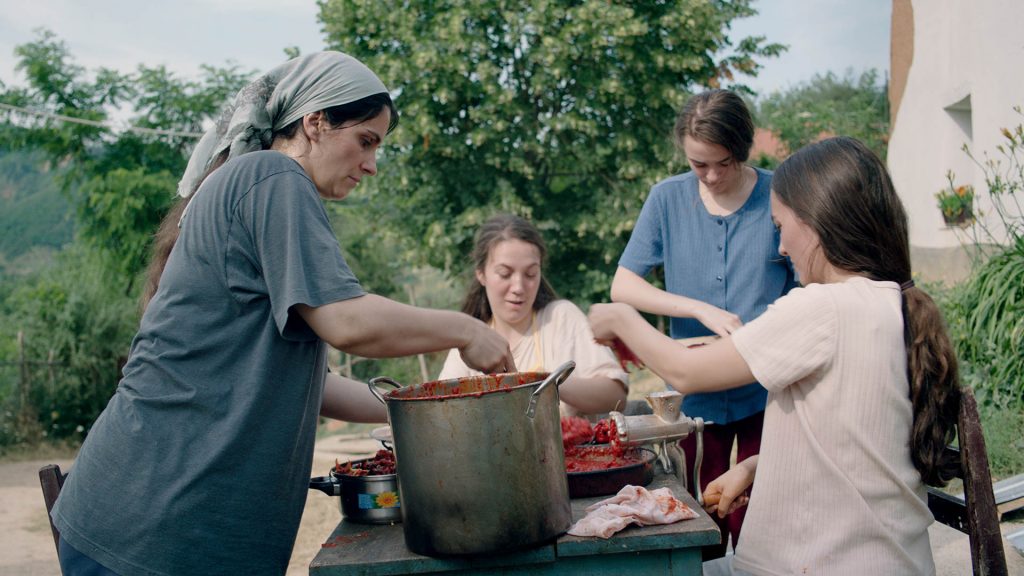November 17, 2021

The following is a press release from DOC NYC:
DOC NYC, America’s largest documentary festival, revealed the 2021 award winners for its juried U.S. Competition, International Competition, Metropolis, Kaleidoscope, Shorts, Short List: Features, and Short List: Shorts sections. Winners of the inaugural IF/Then Shorts x Redford Center Nature Access Pitch competition were also announced. A complete list below.
The in-person portion of the festival’s hybrid 12th edition continues through November 18 with screenings and panels at New York’s IFC Center and Cinépolis Chelsea, along with a special closing night presentation of The First Wave at The Beacon Theatre. DOC NYC’s online screenings run through November 28, with some 100 features available to stream across the United States, including almost all the award winners. Select winners also have in-theater screenings during the festival’s final two days in person in New York.
Online DOC NYC Live conversations, presented on Facebook Live, will take place on November 22 with the filmmakers from the Short List: Shorts section, and on November 23 with talent behind the films in the festival’s Short List: Features section. For a full schedule of films and events, see www.docnyc.net. Ticket and pass information is below.
For DOC NYC’s competitive sections, five juries selected films from the festival’s new U.S. Competition, International Competition, and Kaleidoscope sections, as well as its long-running Metropolis and Shorts lineups, to recognize for their outstanding achievements in form and content. The Short List: Features program—a selection of nonfiction films that the festival’s programming team considers to be among the year’s strongest contenders for Oscars and other awards—vied for awards in four categories: Directing, Producing, Cinematography, and Editing, with a Directing prize also awarded in the Short List: Shorts section. The Short List awards were voted on by two juries of filmmaker peers.
Winners of the 2021 Grand Jury Prize in the U.S., International, Kaleidoscope, Metropolis, and Shorts competitions will each receive a deliverables package provided by PostWorks New York.
Voting for the festival’s Audience Award continues through November 18; the winner of the award will be announced on November 19.
U.S. Competition: The jury selected from among twelve new American nonfiction films in this section.
Remaining screening: Wednesday, November 17 at 9:40pm at Cinépolis Chelsea.
Grand Jury Prize: Once Upon a Time in Uganda, directed by Cathryne Czubek, co-directed by Hugo Perez, and produced by Gigi Dement, Cathryne Czubek, Matt Porwoll, Hugo Perez, and Kyaligamba Ark Martin.

Juror’s statement: “We choose Once Upon a Time in Uganda for illustrating the transformative capacity of film to bridge cultures and change lives. We are inspired by the charming, original method the filmmakers took in documenting the creative joy of Wakaliwood, a community that relies on ingenuity and imagination to overcome the economic obstacles of global audiovisual production; and we appreciate how Once Upon a Time in Uganda demonstrates the connective power of international film festivals in asserting that ‘the audience is our family.'”
Special Mention: Refuge, directed/produced by Erin Berhardt and Din Blankenship.
Jurors’ statement: “We give an honorable mention to Refuge for addressing one of the U.S.’s most urgent problems — the lack of civil dialogue, or any dialogue, between our warring cultural factions.”
Jurors: Jaie Laplante (Executive Director, Miami Film Festival); Amy Nicholson, filmmaker; Valerie Torres (Director of Theatrical Sales and Exhibitor Relations, Shout! Factory)
Films featured in the U.S. Competition section: Anonymous Sister, Be Our Guest, Boycott, Exposure, Grandpa Was an Emperor, Newtok, Objects, Once Upon a Time in Uganda, Refuge, The Slow Hustle, A Tree of Life, United States vs. Reality Winner.
International Competition: The jury selected from among twelve new international productions in this section.
Grand Jury Prize: On the Other Side, directed by Iván Guarnizo, produced by Jorge Caballero.
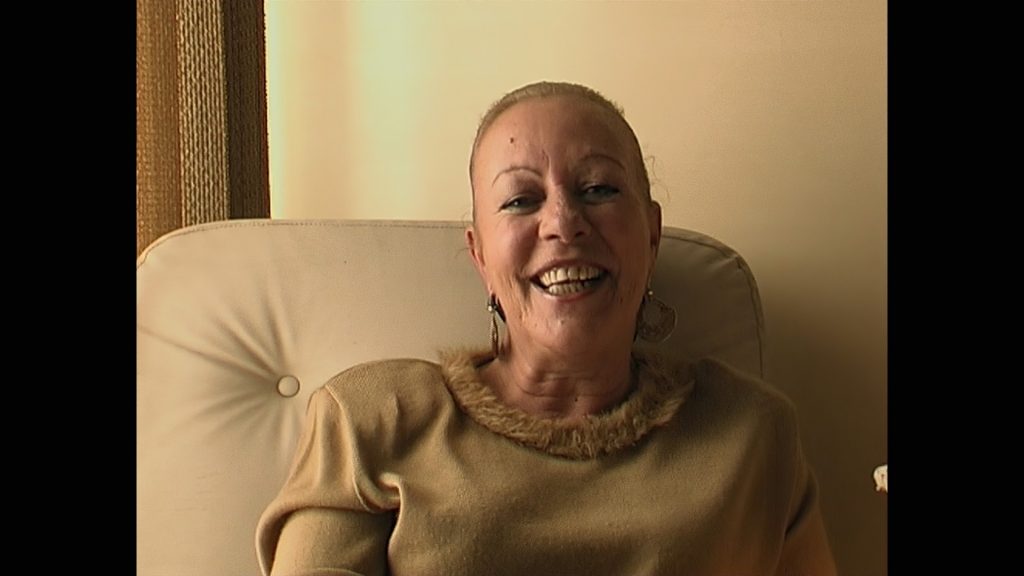
Jurors’ statement: “With its exquisite directorial vision and restraint, On the Other Side deeply affected us, the jury. The film is testament to a courageous, emotional, and deeply personal endeavor by filmmaker Iván Guarnizo, elegantly bypassing the heavy handed tropes of trauma and violence to instead craft a work of art that is poetic and profound. In a world increasingly polarized, where constant battlelines are being drawn, the nuances of this film’s journey and care towards its participants show us the power and hope of redemption, forgiveness, and humanity.”
Special Mention: After the Rain, directed by Jian Fan, produced by Richard Liang, S. Leo Chiang.
Jurors’ statement: “We would also like to recognize After the Rain by Jian Fan, a standout among a strong group of international contenders. The jury appreciated the dedication to the story over a decade and the steady, observational lens of the filmmaking team to craft a deeply intimate and haunting film.”
Jurors: Samara Chadwick (Executive Director, The Flaherty); Aseem Chhabra (Festival Director, New York Indian Film Festival); Bao Nguyen, filmmaker.
Films featured in the International Competition section: After the Rain, Be My Voice, Comala, The Bubble, Come Back Anytime, The Devil’s Drivers, F@ck This Job, The Forgotten Ones, Go Through the Dark, The Mole, On The Other Side, Young Plato.
Kaleidoscope: The jury selected from among seven films in this section, which showcases essayistic and formally adventurous documentaries.
Grand Jury Prize: Nude at Heart, directed by Yoichiro Okutani, produced by Asako Fujioka, Eric Nyari

Juror’s statement: “The jury awards its top prize to a film of risky and decisive filmmaking, a film that documents with confidence an insular world, and builds an intelligent, purposeful distance between the filmmaker and the characters. This is a film that trusts its own images to lead us into a complex world and community of work and collective support—a film that doesn’t moralize, sexualize, or objectify its subjects, but instead models a careful gaze, offers a subtle entry into a fascinating universe, and gives space and presence to its inhabitants.”
Special Mention: Nothing But the Sun, directed by Arami Ullón, produced by Pascal Trächslin
Juror’s statement: “The jury would also like to award a Special Mention to a film that provides a gateway to a diverse and complex history, and helps to salvage and give a form to a common memory. This is a choral film, one full of speaking that prioritizes the collective, rather than an individual voice, and explores the fragility of media in preserving oral histories, encounters, emotions, and the residue of trauma.”
Jurors: Daniela Alatorre, producer; Cíntia Gill (Festival Director, formerly of Sheffield DocFest, Doc Lisboa), Leo Goldsmith (The New School)
Films featured in the Kaleidoscope section: Cow, Edna, Invisible Demons, Nothing But the Sun, Nude at Heart, The Man Who Paints Water Drops, Three Minutes: A Lengthening.
Metropolis: The jury selected from among seven films in this section, which is dedicated to stories about New Yorkers and New York City.
Grand Jury Prize: Hold Your Fire, directed by Stefan Forbes and produced by Tia Wou, Fab Five Freddy, and Amir Soltani.
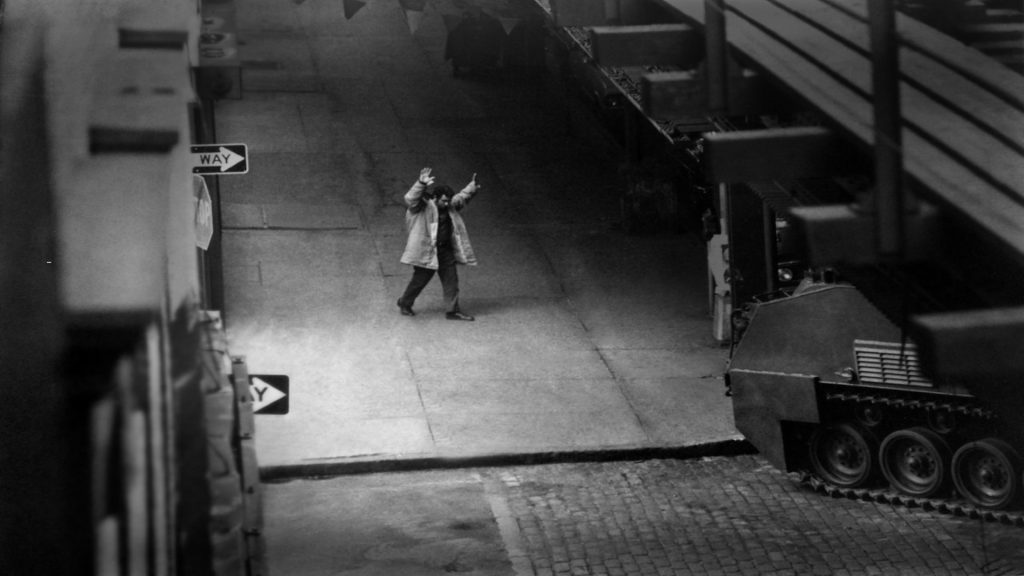
Jurors’ statement: “The filmmaker elegantly and impactfully uses the past to illuminate the social and political issues that are still critical to consider today. The black and white archival footage comes colorfully to life with masterfully edited sequences and music that pull you into the moment. The interviews highlight their emotionally conflicted responses and challenge us to consider the differing points of view. In this contemporary contemplation of violence and race relations in our culture, we are left to consider the possibility of redemption and hope.”
Special Mention: Charm Circle, directed and produced by Nira Burstein and produced by Betsy Laikin.
Available online through Sunday, November 28.
Jurors’ statement: “The honesty and bravery of the filmmaker are powerfully felt in approaching the subject of family dysfunction in a candid and uncensored way. With strong character development, the narrative patiently/lovingly unfolds with moments of humor and creativity to build compassion for a family’s hopes and dreams as well as a profound sense of loss.”
Jurors: Beth B, filmmaker; Denise Greene (Director of Programs, Black Public Media); Lucila Moctezuma (Program Director, Chicken & Egg Pictures).
Films featured in the Metropolis section: Charm Circle, End of the Line, Hold Your Fire, Mimaroğlu: The Robinson of Manhattan Island, Mr. Saturday Night, The Photograph, The Reverend.
Shorts Competition: All new short films playing at the festival were eligible for the Shorts Grand Jury Prize, with the exception of DOC NYC U showcases and Short List: Shorts selections.
Shorts Grand Jury Prize: NASIR, directed by Nasir Bailey and Jackson Kroopf and produced by Jackson Kroopf.
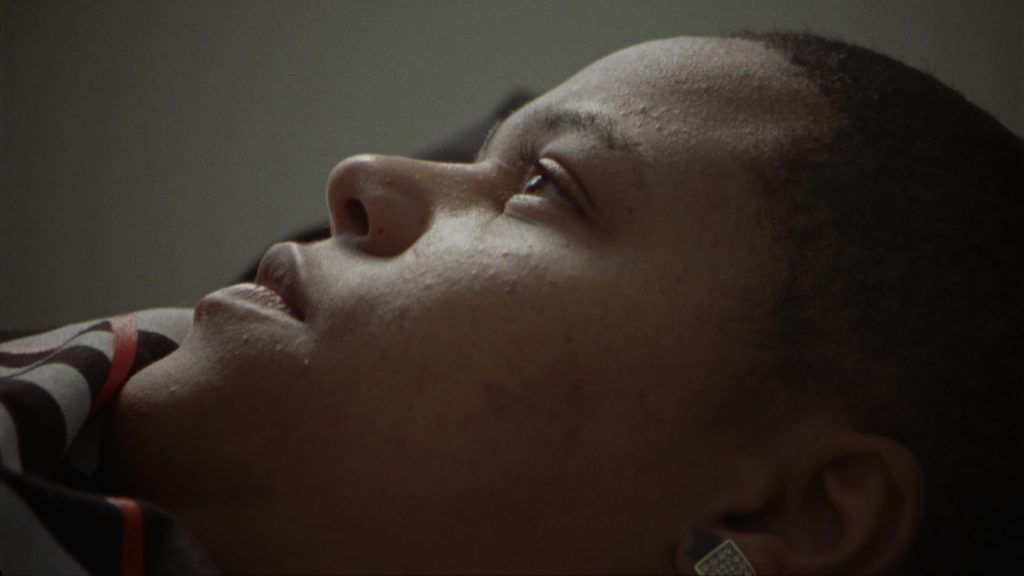
Jurors’ statement: “For its lucid and lyrical portrait of an artist as a young man, the 2021 DOC NYC Shorts Grand Jury Prize is presented to Nasir Bailey and Jackson Kroopf’s exquisitely crafted NASIR. The film finds its soulful subject in a state of transition, proudly granting the audience permission to witness his slow, steady, hard-won glow up. Energized by the subject’s effortless charisma and potent musical gifts, the film emerges as a deeply human study of self-actualization and personal evolution. Intimately assembled with an eye for luminous, delicate imagery and direction, the film unfurls with a quiet confidence, flowing elegantly between moments of pathos and poetry—ultimately standing tall as a beacon of transmasculine resilience and joy.”
Special Mention: American Scar, directed and produced by Daniel Lombroso, and produced by Yara Bishara, Melissa Fajardo, Stephania Taladrid.
Jurors’ statement: “American Scar turns a well-mined, seemingly completed Trump-era story into a compelling call-to-action by creatively cataloging the environmental impact of the abandoned US-Mexico border wall. Startling images capture the destruction caused by humanity’s hubris and serve as a harbinger of things to come. The film presents a stark reminder of the devastating impact of human action on the natural world and offers a rousing and immediate call for change.”
The 2021 winning Short film qualifies for consideration in the Documentary Short Subject category of the Annual Academy Awards® without the standard theatrical run (provided the film otherwise complies with the Academy rules).
Jurors: Faridah Gbadamosi (Artistic Director, Outfest); Robin Robinson (festival programmer, True/False); Robert John Torres (festival programmer, Hot Springs Documentary Film Festival).
Short List: Features: DOC NYC’s Short List for Features puts the spotlight on 15 documentaries representing the best of the year.
Directing Award: In the Same Breath, directed by Nanfu Wang

Jurors’ statement: “Nanfu Wang cracks open the story of the global COVID-19 pandemic using an incredibly personal and political lens to reveal China’s propaganda machine — and America’s. The jury celebrates Wang’s unwavering, skillful and persistent command of the documentary craft that it takes to make such a complex and emotional film.”
Producing Award: Flee, produced by Monica Hellström, Signe Byrge Sørensen, Charlotte De La Gournerie.
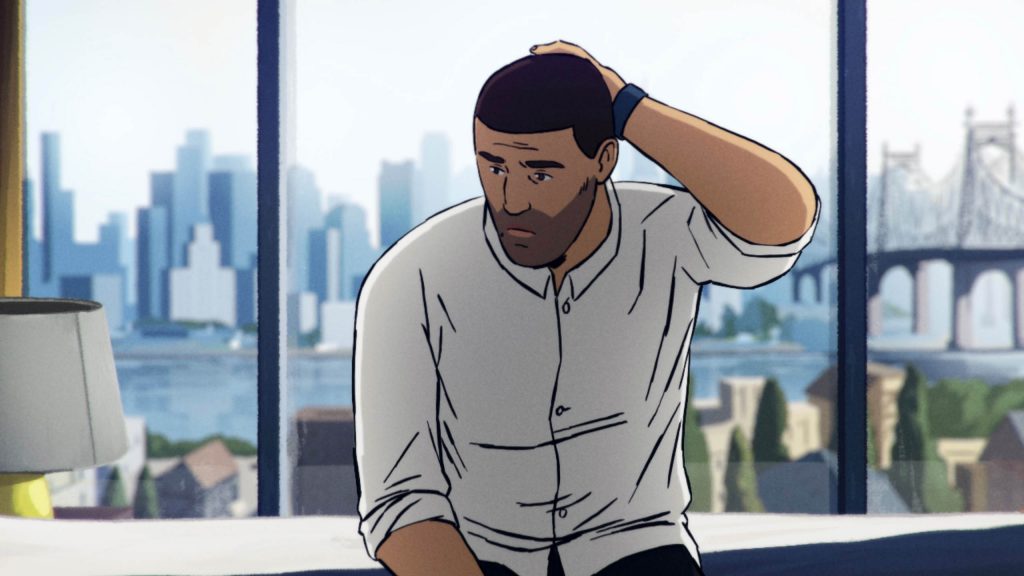
Jurors’ statement: “Among the many strengths of Flee, the jury recognizes the enormous task of producing the film. Whether securing funding for expensive animation, fostering groundbreaking creativity, or managing an intricate post-production phase, the producing team’s critical role made Flee the vital, touching, artistic achievement it is.”
Editing Award: Ascension, edited by Jessica Kingdon

Jurors’ statement: “Ascension never stops surprising, despite its leisurely pacing and seemingly straightforward construction. The jury applauds Jessica Kingdon’s patient and astute editing that weaves striking imagery of China’s gaping social divides into a poetic reflection on — and quiet critique of — consumption and capitalism.”
Cinematography Award: Faya Dayi, cinematography by Jessica Beshir
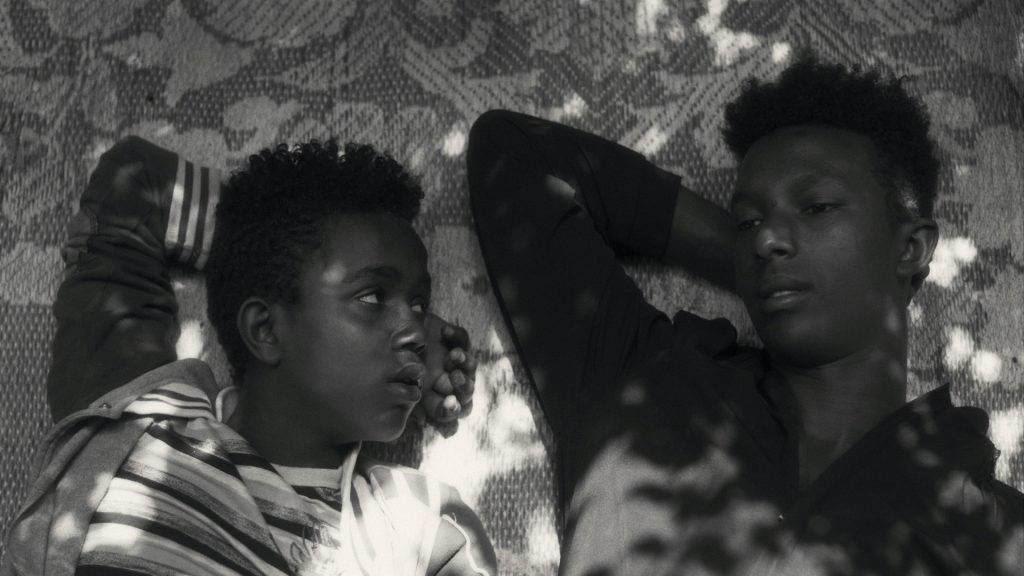
Jurors’ statement: “Jessica Bashir’s cinematography in Faya Dayi is both an aesthetic and spiritual achievement. Bashir has a bare awareness that holds wisdom, her visual translation so elevated it feels as if operating from the subconscious. The cinematography in Faya Dayi reminded the jury how much we can learn from simply watching.”
Special Jury Prize for Cultural Treasures: Summer of Soul (… Or When the Revolution Could Not Be Televised), directed by Ahmir “Questlove” Thompson, produced by Joseph Patel, Robert Fyvolent, David Dinerstein
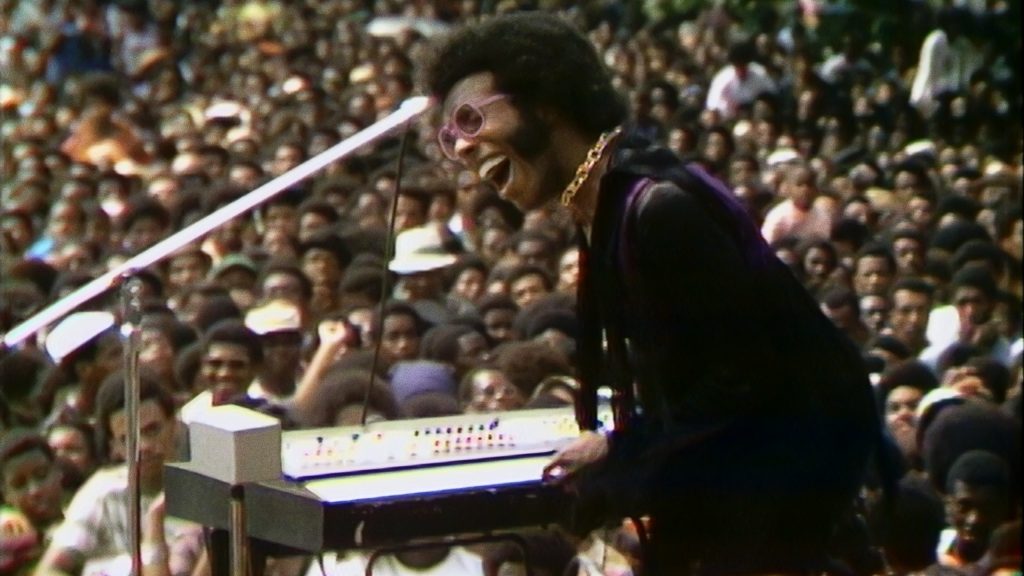
Jurors’ statement: “For its directorial vision, fantastic editing, and overall funky beats that weave history and culture into the colorful fabric of one summer festival in Harlem, the jury awards a Special Jury Prize for Cultural Treasures to Summer of Soul. If we could, the jury would travel back in time to release this film 50 years ago so it would have informed our collective memory. Instead, we hope this award will encourage audiences to imagine the collective history we should have had.”
Jurors: Nadia Hallgren, filmmaker; Kimberly Reed, filmmaker; Hao Wu, filmmaker.
Short List: Shorts: DOC NYC’s Short List for Shorts highlights 12 documentary shorts that the festival’s programming team considers the year’s leading awards contenders.
Directing Award: Don’t Go Tellin’ Your Momma, directed by rubberband, Topaz Jones, produced by Luigi Rossi
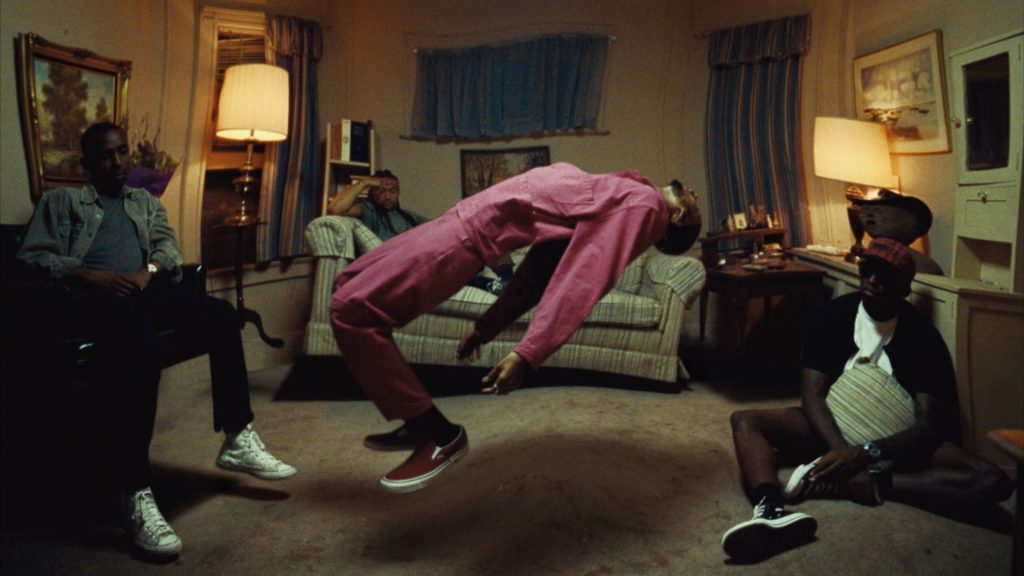
Jurors’ statement: “For its innovative structure and immediacy, we selected Don’t Go Tellin’ Your Momma as our winner. The playful editing combined rich visuals, moving personal archival material, and thought-provoking interviews to give audiences a full sense of the filmmaker and his community. The storytelling successfully nails both personal experience and political history.”
Special Jury Mention: The Queen of Basketball, directed by Ben Proudfoot, produced by Elizabeth Brooke, Abby Lynn Kang Davis, Gabriel Berk Godoi, Brandon Somerhalder, Sarah Stewart
Jurors’ statement: “We also chose to recognize The Queen of Basketball with a Special Mention. Viewers fall in love with Lusia because the filmmakers deftly convey her deep strength and fragility at the outset. We are immersed in the experience of a pathfinding woman athlete whose remarkable career was cut short by the racial and gender barriers of her time. Bringing the film full circle to the next generation – a little girl shooting hoops in Lusia’s driveway – opens this storytelling to the future.”
Jurors: Mirra Bank, filmmaker; Kirstine Barfod, producer; Alison Klayman, filmmaker.
IF/Then Shorts x The Redford Center Nature Access Pitch: The Redford Center and IF/Then Shorts announced Between Earth and Sky as the winner of the inaugural IF/Then Shorts x The Redford Center Nature Access Pitch event at DOC NYC, celebrating stories that spotlight the benefits of time spent outdoors.
Between Earth and Sky, directed by Andrew Nadkarni and pitched by Nadkarni and producer Swetha Regunathan, will receive a $25,000 production grant and a year of wraparound mentorship from IF/Then Shorts. Also selected as honorable mentions by the jury of the Nature Access Pitch were Fruit of Soil and Makana o ke Mele (Gift of Song), each of which will receive a $5,000 grant and distribution consultation from IF/Then Shorts. Upon their completion, all three films will be featured as part of The Redford Center’s Nature Films Program.
After announcing the winning films live at DOC NYC Festival, Jill Tidman, Executive Director of The Redford Center shared, “This day reminded me that there’s so much vital work taking place that most people don’t know about. Amazing individuals and communities are working to solve the problems of nature access, and their stories are just incredible. I am so inspired and honored to have these new documentaries as part of The Redford Center family of films. We are going to support them, in many ways, to make sure their work is shared with the world. I couldn’t be happier with the outcome of this inaugural Nature Access Pitch, our partnership with IF/Then Shorts, and the platform of DOC NYC.”
TICKETS AND PASSES:
Festival tickets and passes may be purchased at docnyc.net/tickets-and-passes or at venue box offices. Online tickets and passes are available for purchase online only.
In-person Screenings: $19 General Admission/$17 Seniors & Children/$16 IFC Center Members, unless otherwise noted.
All screenings in the Short List: Features, Short List: Shorts, Winner’s Circle and DOC NYC U sections, as well as all Monday-Friday screenings starting before 5:00pm: $12 General Admission/$10 IFC Center members
Online screenings:
$12 General Public/$9 IFC Center Members
Passes and Ticket Packs:
Online Film Pass $250
Grants access to all the films screening on the festival’s virtual platform, November 10-28.
Five-Ticket Package for Online Screenings $45
Ten-Ticket Package for Online Screenings $80
A package of 5 or 10 online tickets at a special discount price.
Sponsors
The festival is made possible by:
Leading Media Partners: New York Magazine; The WNET Group
Major Sponsors: A&E; Apple Original Films; Netflix; WarnerMedia
Supporting Sponsors: discovery+, National Geographic Documentary Films; SHOWTIME® Documentary Films
Signature Sponsors: Amazon Studios; Bloomberg Philanthropies; Cquence; Hulu; National Geographic; NBC News Studios; NYC Mayor’s Office of Media and Entertainment; Participant; PostWorks; Sony; XTR
Signature Media Partners: IndieWire; The New Republic; WNYC
Event Sponsors: 30 for 30 / ESPN Films; Cinépolis Luxury Cinemas; Consulate General of Canada in New York; Cowan, DeBaets, Abrahams & Sheppard LLP; Fox Rothschild LLP; Frankfurt Kurnit Klein & Selz PC; IF/Then Shorts; Impact Partners; JustFilms | Ford Foundation; MTV Documentary Films; Reavis Page Jump LLP; SVA’s MFA Social Documentary Film; The Redford Center; TIME Studios; Wheelhouse Creative
Friends of the Festival: Agile Ticketing; Cinesend; Essentia, Ptex; Shiftboard; Telefilm Canada
DOC NYC is produced and presented by IFC Center, a division of AMC Networks.
Complete DOC NYC program information can be found at: www.docnyc.net
To inquire about sponsor or partnership opportunities for DOC NYC, please contact Raphaela Neihausen, Executive Director, at [email protected].

